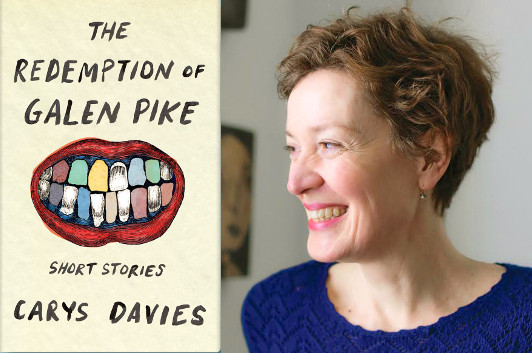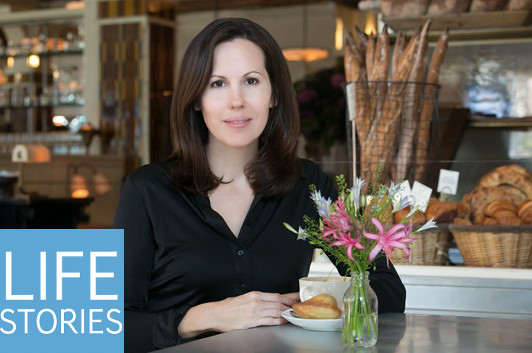Life Stories #91: Danielle Trussoni
I spoke to Danielle Trussoni about her second memoir, The Fortress, in late 2016, just a few days after the news had broken about Brad Pitt and Angelina Jolie’s marriage falling apart. The timing was apt, given that Trussoni’s book detailed how, in a desperate bid to save her own marriage, she took the windfall she’d earned from her first novel, Angelology, and moved with her husband and two children to a medieval fortress in the middle of France. Spoiler alert: Moving to the other side of the world doesn’t actually put everything that’s gone wrong behind you…
When I mentioned to Trussoni that her husband’s treatment of her read like blatant gaslighting, she told me that she’d never actually heard that term until after she escaped her marriage—to me, that was an important reminder of how easy it can be to find oneself in a relationship this destructive. She also observed that after a childhood shaped by her father’s intense PTSD, she was used to and perhaps even attracted to turbulence and drama… and, too, conditioned to sort out her problems on her own, not showing even those closest to her how bad things had gotten and how much she needed help. As a result, things got very, very bad, and yet she refused to let the experience break her:
“Obviously, there were a lot of negative things that happened, but I came out of this completely happy. I made a piece of art out of an experience that could have been devastating… I sold the fortress after all of this, and I remember when I was packing up before I left, a woman I knew in the village said, ‘You know, some people could never recover from this, because you basically lost everything.’ And, you know, I just decided that that’s not going to happen to me, and I’m not going to be devastated by this. It’s something that happened to me; I’ve learned so much from it. Hopefully, what I’ve learned is in this book, and this book will be out there in the world and create something good.”
Listen to Life Stories #91: Danielle Trussoni (MP3 file); or download this file by right-clicking (Mac users, option-click). Or subscribe to Life Stories in iTunes, where you can catch up with earlier episodes and be alerted whenever a new one is released. (If you’re already an iTunes subscriber, please consider rating and reviewing the podcast!)
photo: Beowulf Sheehan
12 June 2017 | life stories |
Carys Davies’ Brief Drama of the Soul

photo: Emily Atherton
The Redemption of Galen Pike, the Frank O’Connor International Short Story Award-winning collection from Carys Davies, takes readers to a lot of different places. The title story is set in a Colorado frontier town, where a virtuous Quaker woman comes each day to the cell where a murderer awaits his execution; other stories show readers a tense encounter between two isolated souls in the early days of Australian settlement, a lonely man who tells Queen Victoria the lurid story of his marriage’s end, a tragic scene played out in a Siberian hostel… Davies’ dramas are already stark, but they stand out even more aggressively in these settings, each one hitting home with unerring effect, even if—as will be the case with that title story—you think it’s veering into genre stereotype. In this guest post, Davies explains how she learned to identify the moments in her characters’ lives that make for great short stories.
People ask me all the time what it is I love about short stories, and why I write them.
It all began for me back in the mid-1990s. I was living in Chicago, working as a journalist. I had four small children, life was very busy, chaotic, and one day for a breather my husband and I took the kids to Powell’s bookshop where I came across a copy of Eudora Welty’s Collected Stories. It had a brown 1960s-ish cover and while the children ran amok in the aisles I sat down on the floor and read one of the stories: “Death of A Traveling Salesman.”
16 May 2017 | selling shorts |


 Our Endless and Proper Work is my new book with Belt Publishing about starting (and sticking to) a productive writing practice.
Our Endless and Proper Work is my new book with Belt Publishing about starting (and sticking to) a productive writing practice. 
